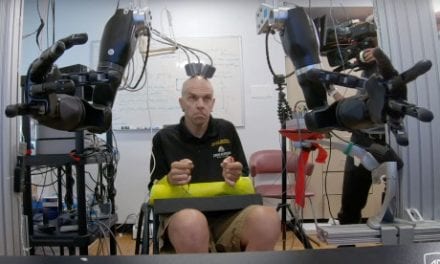 |
Last year, the House of Representatives passed the Children’s Health and Medicare Protection (CHAMP) Act (HR 3162) to provide therapists and physicians with a payment increase of 0.5% in 2008 and an additional 0.5% in 2009. The legislation also would have extended the therapy cap exceptions process and ordered the Centers for Medicare and Medicaid Services (CMS) to do yet another study on the use of outpatient therapy services.
Despite this accomplishment in the House, the Senate stalled over how to pay for a simple 0.5% increase in the reimbursement rate for 1 or 2 years, without any long-term revisions to the formula. Several Senators on the Finance Committee refused to consider cuts to Medicare Advantage as a way to offset the budgetary costs of increasing physician and therapist payments. Toward the end of the session, negotiators nearly reached a compromise by using targeted reductions in specific portions of the Medicare Advantage programs as offsets. However, the White House stepped in and argued that no reductions to Medicare Advantage would be acceptable. As a result, the Senate passed (and the House reluctantly agreed to) a bare-bones compromise that increased the physician payment by 0.5%, but only until June 30, 2008. So, if Congress fails to act, the formula reverts to its previous level, which would be a decrease of 10.6% for the rest of this year and the payment rate for therapists and physicians would be cut by an additional 5% on January 1. Likewise, without Congressional action, the therapy caps will go into full effect July 1, meaning beneficiaries would be limited to $1,810 of outpatient occupational therapy services and the same amount for physical therapy and speech-language pathology services combined.
SEEKING A BIPARTISAN BILL
The Senate leadership and the Finance Committee have been actively negotiating with the White House for the past 2 months in an attempt to find sufficient offsets to pay for the Medicare legislation and both sides of the aisle were encouraged by progress that was being made. However, on May 22, just prior to the Memorial Day recess, negotiations broke down.
Senate Minority Leader Mitch McConnell (R-Ky) issued a press release stating: “After many weeks of positive discussions, I’m disappointed the Chairman of the Finance Committee chose to walk away from bipartisan Medicare negotiations. It is unfortunate the Democrats have chosen a partisan path instead of continuing to work with Senator Grassley and the Republican Conference on a bipartisan compromise.”
Senate Finance ranking member Charles Grassley (R-Iowa) and Senator McConnell sent a counterproposal to Democrats discussed in a member meeting May 21. But the measure avoided getting savings from reductions in additional federal payments to the private Medicare Advantage plans to offset stopping the physician pay cut and fund policy changes. They instead offered $8.7 billion in savings by cutting duplicative Medicare Advantage indirect medical education payment.
BILL “PAY-FORS” THE OBSTACLE
Republicans proposed eliminating part of a Medicare Advantage stabilization fund meant to encourage plans to serve new areas that would produce $1.3 billion in savings and expanding a Medicaid asset verification demonstration nationwide to save $1 billion.
While Democrats want to slash the indirect medical education payments, they proposed requiring Medicare Advantage private fee-for-service plans covering counties with two additional private fee-for-service competitors to negotiate with providers, saving $3 billion, according to a Republican aide.
The administration does not support cuts to the private plans. Democrats included in their proposal a $1.9 billion cut in oxygen payments that is not supported by most Republicans.
Both parties’ proposals sought an 18-month physician pay patch that would freeze payment levels, although Finance Committee Chairman Max Baucus (D-Mont) said on May 21 that he wants to give physicians and therapists a small, undetermined pay increase.
OTHER PROVISIONS CONSIDERED
The two proposals included electronic prescribing requirements. Republicans sought a larger Medicare reimbursement decrease, though, for physicians who do not adopt e-prescribing in later years.
Both parties sought reimbursement increases for rural providers, though Republicans said their proposal was larger.
Both Grassley and Baucus have been strong proponents of the Medicare Physician Quality Reporting Initiative (PQRI), and both have publicly stated numerous times this year that they hoped to put more money toward the program. But the initiative wasn’t identified as one that was included in the respective proposals.
There is interest in the Senate in including other provisions in the bill. Baucus and Grassley, both from rural states, have long supported provisions that boost payments to rural providers such as the physician scarcity bonus and the geographic practice cost index. They have also expressed interest in including other provisions such as:
- increased money for the PQRI
- electronic prescribing
- a “Sunshine Act” requiring drug companies to report gifts given to physicians
- a moratorium on specialty hospitals
- mental health parity
- comparative effectiveness research
THERAPY CAP PROSPECTS
Extension of the therapy cap exceptions process continues to enjoy strong bipartisan support, and nothing has changed that would suggest that such an extension (for the same duration as the SGR patch) would not be part of any package. A majority of members of the House and the Senate have signed on to legislation that would repeal the therapy cap legislation altogether. However, due to the cost associated with repeal, there is little chance that anything other than an extension of the exceptions process will be possible this year.
LEGISLATIVE GOALS
The goal of the physician-therapist community for this year is to have a bill that will offer an 18-month window of stable and predictable payments, during which time provider groups and patient advocates can negotiate a broader payment reform bill that will pay physicians adequately and eliminate the need for annually seeking payment stabilization measures. Therapy stakeholders are also eager to see an extension of the therapy cap exceptions process for a coinciding period. But there is also considerable interest in developing a permanent solution to the per beneficiary Medicare caps. Several ideas have been floated including per episode case rates, reimbursement based on patient classifications, as well as quality-based initiatives such as waiving the therapy cap for beneficiaries receiving care in a facility or from a therapist participating in a CMS outcomes data collection program.
NEGOTIATIONS STILL POSSIBLE
Some Republicans were surprised that the Democrats did not counter their counterproposal before walking away, but a Baucus staffer said they believed the GOP proposal represented their final position.
Senator Baucus said he will move ahead with a Democratic proposal that will be drafted over the Memorial Day recess that began May 23. Grassley said Republicans would also offer a proposal if an agreement could not be negotiated. Both sides continue to say they remain open to reaching consensus. Congress will return from recess on June 3.
MEANWHILE, BACK AT THE HOUSE
The House continues to wait for Senate action since it passed the CHAMP Act back in August 2007. But members of the House committees of jurisdiction are becoming increasingly anxious about not being involved in negotiations and fear the Senate will send them a “take it or leave it” bill just before the June 30 deadline.
CMS ISSUES “INCIDENT TO” POLICY UPDATE
The Centers for Medicare and Medicaid Services issued Transmittal 87 on May 2 updating the policy pertaining to services provided “incident to a physician’s or nonphysician practitioner’s (NPP’s) service in the office setting. “
In issuing the transmittal that instructs Medicare Carriers, the agency said “the number of services provided as incident to the services of physicians/NPPs has grown continuously. As the benefit is applied in various settings for different services, the original instructions appeared insufficient. This instruction is published in response to continued requests for clarification of policies related to Part B services provided incident to the services of physicians.” The transmittal is intended to clarify and not change current policy.
Highlights of the transmittal include:
- Payment requires that the services are documented in the patient’s record.
- Documentation shall verify that the information on the claim is accurate and justify that the service was appropriately rendered as a covered service incident to the services of a physician/NPP.
- The identity of the people who authorized, supervised, and rendered the service shall be identifiable in the medical record and/or in policies and records of the place where services are performed.
- Documentation shall be available for medical review and shall indicate:
- Reference to the initial problem and service to which the subsequent service is incidental. The medical record must clearly indicate that there was an initial service to which the subsequently provided and billed services are integral and incidental.
- “The subsequent service must be integral (ie, both essential and connected) to the initial service and incidental as described above.
- A physician’s/NPP’s authorization for incident to services shall be recognizable in the medical record. (Authorization may be in any form.)
- The physician/NPP in an office setting who provides the initial service must be a member of the same group in which the subsequent incident to services are provided.
- There must be indication of active involvement of a physician/NPP in the treatment, as evidence of their patient care oversight. The frequency of this involvement shall be determined by the contractor, based on the condition of the patient and complexity of the case.
- Each time a service is provided, a note in the medical record shall verify the service provided (consistent with the service billed) and the identity of the person(s) who provided the service, including any professional credentials.
- Evidence that the supervisor was present and available (eg, on the physician/NPP owned and operated clinic roster throughout the time the service is delivered) in both office and physician/NPP owned and operated clinic settings.
- Contractors shall not pay for services as incident to a physician’s/NPP’s service unless they determine that the staff was qualified to provide the service.
- Contractors shall apply the policies for services incident to a physician’s/NPP’s services in the office only in the identifiable boundary of an office or in a single room.
- There must be evidence that the services are reasonable and necessary.
The policy clarification carried an effective date of June 2, 2008.
AMA REACTS
 |
The American Medical Association and several medical specialty societies have sent a letter to CMS urging delay and modification of the transmittal, claiming the notice makes significant changes in Medicare policy that cannot be implemented by the effective date.
The letter requests that CMS reconsider the requirement for explicit documentation in medical records of the credentials of clinical personnel; remove requirements that patient care plans make explicit references to services that will be provided as “incident to” services, as opposed to physician or nonphysician practitioner services; and remove all references to the physician self-referral (Stark) law.
Jerome B. Connolly, PT, Annapolis, Md, has been a therapist since 1972. Connolly served as senior vice president for health policy for the American Physical Therapy Association for 6 years before forming a private lobbying practice, Connolly Strategies & Initiatives. Connolly can be reached at .





